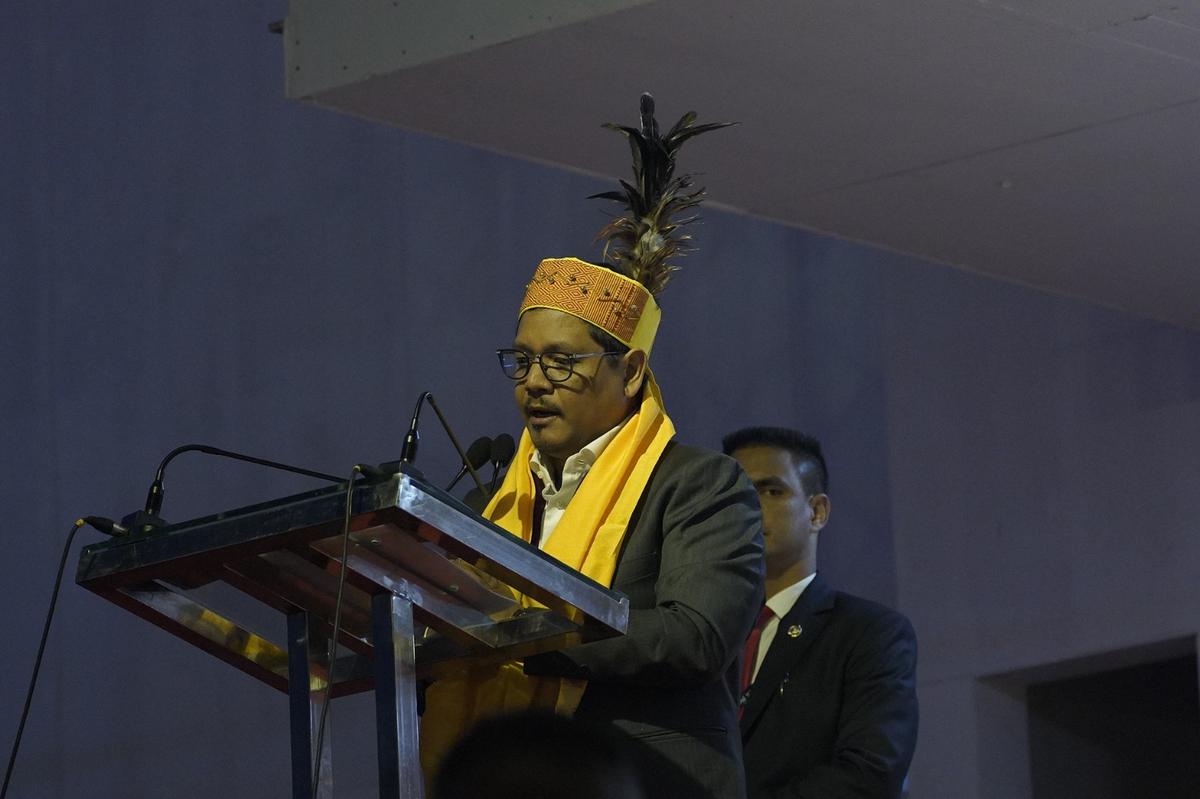Meghalaya Games – a dress rehearsal for Tura district and the state ahead of 40th National Games
The hill-locked state of Meghalaya is on the move and it is earnestly trying to come out of the stereotyped image and perceived notion of being a one-sport, football-crazy state.
True, football is still the most popular sport in the state, and Shillong Lajong FC and its vibrant supporters have been the face of Meghalaya sports for quite some time.
But it may no longer be the same given the frantic pace at which the Meghalya State Government, under Conrad K. Sangma, is promoting sports and building infrastructure in the state.
The need to build a solid sports eco-system rose after the continued poor show in multi-discipline events like the National Games and Khelo India Games.
The State Government, along with Meghalaya State Olympic Association (MSOA), has tied up with Edge 10, a sports firm run by former Australian Olympians — Ian Champbell and Robert Kabbas, to identify and nurture talent.
The scheme has been running in the state for the last two years and has brought in some positive results with some sportspersons attached to the scheme winning medals in the recently concluded Meghalaya Games.
The fifth Meghalaya Games, which was held in Tura recently, was an important milestone in the history of the state. For the first time ever, the multi-discipline event was held away from the capital city of Shillong. In many ways, it was a dress rehearsal for the preparedness of the district to hold some events of the 40th National Games, which has been allotted to the state.
Around 3,000 athletes and a huge number of officials descended on this quaint town — which is the district headquarters of West Garo Hills. For a week the town was a beehive of activity, and its organisational, hospitality and logistical abilities to conduct a multi-discipline event were tested.
But the district administration, with the help of 1,500 volunteers, was able to conduct the Games smoothly, without any complaints. The State Government sanctioned Rs. 23 crore to cover the expenses for holding the games in Tura and every penny was properly utilised for the conduct of the event.

Spirit of sport: The Meghalya State Government, under Conrad K. Sangma (in pic), is promoting sports and building infrastructure in the state.
| Photo Credit:
Special Arrangement
Spirit of sport: The Meghalya State Government, under Conrad K. Sangma (in pic), is promoting sports and building infrastructure in the state.
| Photo Credit:
Special Arrangement
The opening and closing ceremonies and the football matches were held at the P.A. Sangma Sports Complex, which is the pride of Tura.
The state-of-the-art sports complex is being built at a cost of Rs. 127.7 crore and it will have an indoor stadium, a gymnasium, a swimming pool and facilities for conducting table tennis, squash and badminton events. The complex is still under construction and will be ready when Meghalaya hosts the 40th National Games.
The need to have more stadiums was answered to some extent with Tura getting the State’s second synthetic track. The new athletics stadium, named after Garo freedom fighter Po Togan Nengminja Sangma, was inaugurated for the Games by the Chief Minister, who reiterated his government’s commitment to developing sports and said that the state would have new facilities soon.
“The new and refurbished infrastructure is part of a larger sports development plan, including Indoor Hall Hawakhana, Don Bosco College Basketball Court, and Rongkhon Swimming Pool. The Government is committed to investing in sports, with a focus on better infrastructure, athletes’ training, and empowerment of all stakeholders,’’ he said.
President Draupadi Mumru inaugurated the Games in an impressive opening ceremony that showcased the cultural ethos of the State.
On the competition front, the seven-day event drew participants from all districts who took part in 20 disciplines besides three demonstration sports — Mawpin (a Khasi traditional game), Rah Mukrah (a Jaintia traditional game) and Wa’ pong Sika (a Garo traditional game).
East Khasi Hills ended up as champion with a haul of 132 gold, 105 silver and 122 bronze medals while Ri-Bhoi came second with a total of 27 gold, 22 silver and 30 bronze medals. West Jaintia Hills was third with 68 medals including 25 gold, 18 silver and 25 bronze. Pdiangsuklang Syngwan of East Khasi Hills was the most bemedalled athlete of the Games with eight in total, including six gold, in the swimming events.
“Meghalaya will be hosting the 40th National Games, which we were supposed to hold this year. But states who have been allotted the 38th and 39th Games haven’t hosted it so we have time to get the infrastructure in place. We have used the Meghalaya Games to test our capability and to improve infrastructure in the Tura district, which will also host a big number of events in the National Games. We are working closely with the State Government to improve the standard of sports. The Government has agreed to most of our proposals and has raised the cash incentives for sportspersons, winning medals in national and international events. We are trying to build quantity and only through it will come quality. Our talent identification programme with Edge 10 is yielding results but it is a long-term process, and we may see results in 10 years’ time,” said John F. Kharshiing, the working president of Meghalaya State Olympic Association (MSOA).


